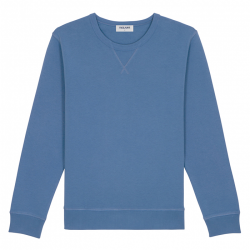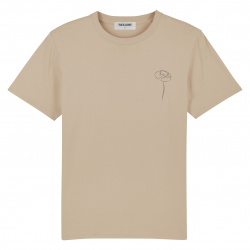Fur coats, silk dresses… Fashion icons that decades ago denoted social status and luxury have gradually become synonymous for cruelty and anachronism thanks to activism and awareness campaigns. In this article we tell you why veganism is much more than not eating animals.
PETA Case + Campaign
In March 1980 in Virginia, USA, the organization People for the Ethical Treatment of Animals, popularly known as PETA, was founded. This organization was a pioneer in publicly denouncing animal abuse and in launching massive campaigns to raise awareness about the mistreatment and conditions that the clothing industry submits to animals. His most disruptive interventions were protests outside fashion shows, throwing fake blood at people with animal skins or performing nudes on public roads.
Its best-known advertising campaign is “I’d Rather Go Naked than Wear Fur”, launched in 1990 in which the all-female band The Go-Go’s participated. Over the years, celebrities such as Pamela Anderson, Pink, Eva Mendes, Iggy Pop and Penélope Cruz have participated.
Nowaday, PETA offers certifications for PETA– Approved Vegan for products that do not contain any animal related materials. Many companies around the world are using this logo to highlight clothing, accessories, home decor items made of vegan alternatives to animal-derived materials. Also, you can search for Approved Vegan Brands here.

Industry data
Every year, the global leather industry slaughters more than a billion animals and tans their skins and hides.
For its part, the fur industry is responsible for the death of more than 50 million animals per year and leading different species to extinction. In adition to death and torture is the excessive waste of resources: 3.3 tons of food (fishmeal, vegetable proteins, etc.) are needed to make a mink coat.
Even though a common criticism about using synthetic clothing is the contamination caused by the use of materials (plastics, release microfibers), this assessment has no basis in contrast to the waste and excessive use of chemicals for the treatment and disposal of cadaveric waste.
When these big brands stopped using fur
- Calvin Klein stopped working with fur in 1994.
- Ralph Lauren, Tommy Hilfiger, and Selfridges decided to stop wearing fur in the mid-2000s
- Hugo Boss and Armani did so in 2015-2016.
- Yoox Net-a-Porter Group announced its decision to stop selling fur in 2017.
- In 2019, the Prada Group declared that its future would be free of animal fur.
- Valentino has announced that it will stop using animal fur in 2022.
Be aware if you want to wear
Animal suffering can come in different forms as well as wool, leather & suede, fur, feathers & down, silk, glue and even ink.
1- Search for PETA certifications, as mentioned before, this logo is very valuable to choose more consciously.
2- Check your clothes labels, here are some suggestions for sustainable vegan fabrics .
3- Look out for the innovative vegan fabrics like recyclable nylon known as ECONYL made from abandoned fishing nets or TENCEL™ Lyocell produced by environmentally responsible processes from the sustainably sourced natural raw material wood.
4- Prioritize brands that, even though they use plant-based materials, also have organic certifications and sustainable practices with the environment.
Bonus track: 4+ brands that make a difference in sustainable fashion
Tiesjurt
T-shirts and clothing with Illustrations and designs by artists from all over the world, each with their own unique story. Sustainable, fair trade, organic, gerecycled, Vegan and cruelty-free.
Iron roots
In Iron Roots they took action over the facts. More than 90% of all sportswear is made out of plastics like polyester and nylon. Their sportswear is made from sustainable and high performing natural materials like hemp, eucalyptus, beechwood and organic cotton.
QURC
Consicous, vegan and handmade products are how they roll. All their raw materials are ethically sourced and cruelty free. These gorgeous sneakers are made in a small high standard factory in Portugal. They maintain an extremely high standard of ethics and pay their employees fairly.
“We work with a minimalistic philosophy and create timeless essentials, without compromising style nor quality.“
Save the wave
Eco-friendly swimwear & activewear made with ECONYL® regenerated yarn from nylon waste.
The Blue Line
Check out our collab line with Tiesjurt and let’s spread the message with impact!



